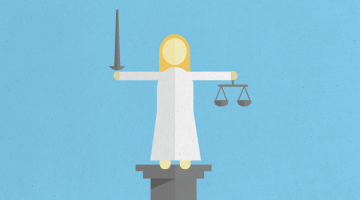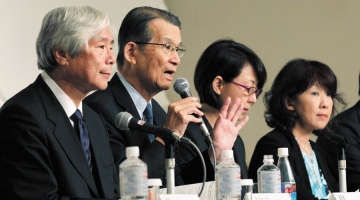Scientists who cheat
Cheating in scientific and academic papers is a longstanding problem, but it is hard to read recent headlines and not conclude that it has gotten worse.
Send us a link
Cheating in scientific and academic papers is a longstanding problem, but it is hard to read recent headlines and not conclude that it has gotten worse.
The report seeks to provide a comprehensive national framework for good research conduct and its governance.
Yoshitaka Fujii falsified 183 papers before statistics exposed him.
Just a fraction of universities in the United Kingdom have made public the extent of their investigations into research misconduct, a survey has found - even though all have been told that they should do so.

The ETH Zurich announced it was investigating one of its professors following accusations of publication fraud. Academic misconduct is nothing new, but the Swiss have only recently taken a coherent approach to investigating it.

The fall out from the STAP case is still being felt across Japan.

A new JAMA study found the Food and Drug Administration (FDA) is silent on matters of scientific misconduct and fraud.

Leonid Schneider argues for a new way to ensure accountability for publicly funded research. It has become clear that scientific dishonesty is rarely sanctioned.
First comprehensive study of patterns of text reuse within the full texts of an important large scientific corpus, covering a 20-y timeframe.
The former blog "Retraction Watch" will become an online, public, and freely accessible database of all retractions in every field of science.
A study based on arXiv shows that copying text from other papers is more common in some nations than others.
Papers retracted due to misconduct accounted for approximately $58 million in direct funding by the NIH between 1992 and 2012, less than 1% of the NIH budget over this period.
Schummeln, ohne zu lügen - das ist die neue Plage der Wissenschaft. Die Medizin ist besonders infiziert.
Paper turned down for plagiarising surfaces in another of publisher’s journals.
According to a study published last year, “most investigators who engage in wrongdoing, even serious wrongdoing, continue to conduct research at their institutions.”
A Hong Kong developmental biologist says he has succeeded in reproducing a method of reprogramming cells to an embryonic like state by applying mechanical stress.
A young researcher who shot to fame in scientific circles when she published an apparently radical and simple way to create stem cells has been found guilty of misconduct by a committee charged with investigating her work
An endocrinologist who resigned from the University of Tokyo in March 2012 amid an investigation that concluded 43 of his papers should be retracted, has retracted five more papers. The newest is in this week's Nature.

The long arm of the law has reached into an investigation of alleged scientific misconduct in Italy.